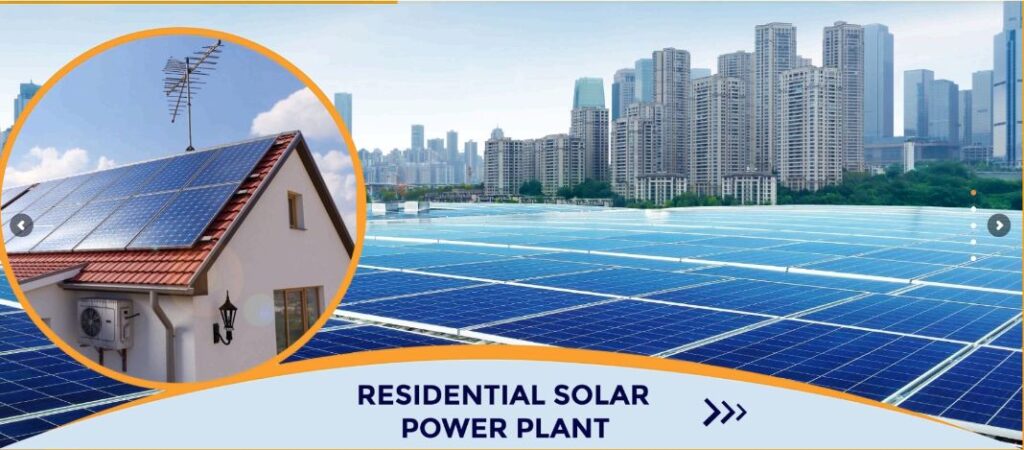
A residential solar plant, also known as a residential solar energy system or residential solar power system, is a setup designed to generate electricity from sunlight for use in a residential home. These systems typically consist of solar panels, an inverter, mounting hardware, and sometimes batteries for energy storage.
Here’s a breakdown of the components:
- Solar Panels: These are the most visible part of the system. Solar panels are made up of photovoltaic cells that convert sunlight into electricity. They come in various sizes and types, such as monocrystalline, polycrystalline, and thin-film.
- Inverter: Solar panels produce direct current (DC) electricity, but most household appliances use alternating current (AC). The inverter converts the DC electricity generated by the solar panels into AC electricity compatible with your home’s electrical system.
- Mounting Hardware: Solar panels need to be mounted securely on the roof or ground. Mounting hardware includes racks, rails, and brackets designed to support the panels and withstand weather conditions.
- Batteries (optional): Some residential solar systems include battery storage to store excess electricity generated during the day for use at night or during periods of low sunlight. This allows homeowners to further reduce their reliance on the grid and increase energy independence.
Benefits of residential solar plants include:
- Reduced Electricity Bills: By generating your own electricity from sunlight, you can reduce your reliance on grid electricity, leading to lower electricity bills over time.
- Environmental Benefits: Solar energy is a clean and renewable source of energy, producing no greenhouse gas emissions or air pollution during operation.
- Energy Independence: Generating your own electricity gives you greater control over your energy supply, reducing dependence on utility companies and fluctuations in electricity prices.
- Financial Incentives: Many governments offer financial incentives, such as tax credits or rebates, to encourage the installation of solar energy systems. These incentives can help offset the initial cost of installation.
However, it’s important to consider factors such as upfront costs, available sunlight in your location, local regulations, and the specific characteristics of your home before deciding to install a residential solar plant. Additionally, maintenance and monitoring may be required to ensure optimal performance and longevity of the system. Consulting with a reputable solar installer can help you assess your options and make informed decisions.






